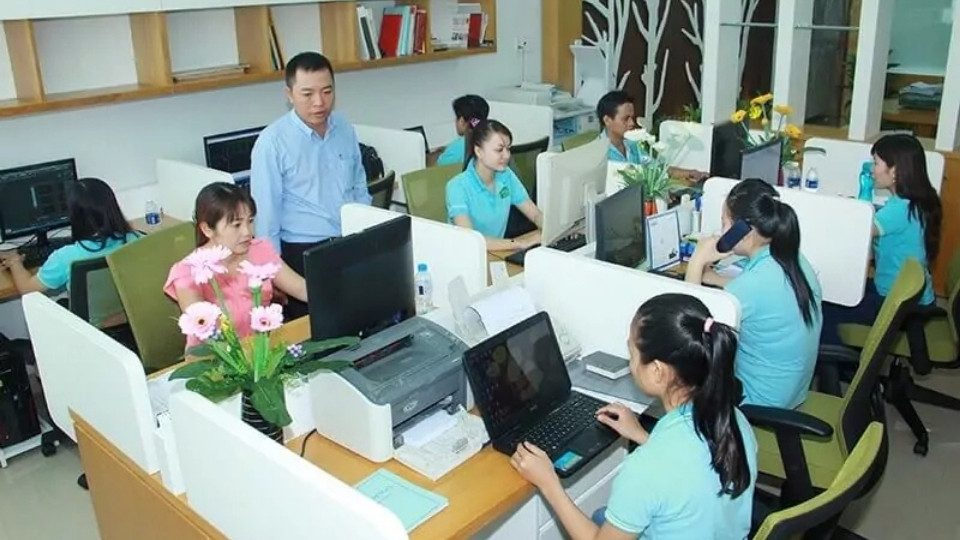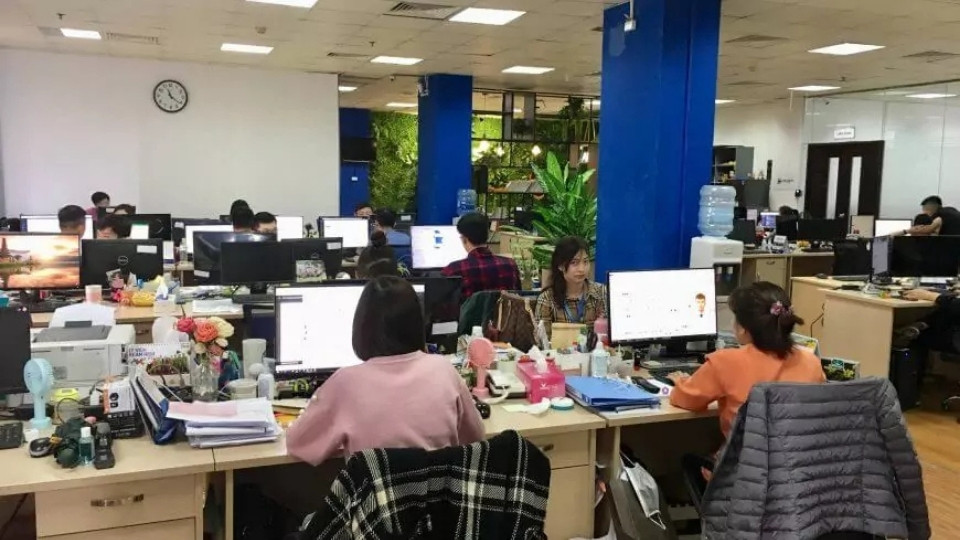Recently in 2019, Vietnam’s labor force has been ranked 57th out of 76 for 4 criteria being regulation, competency availability, cost efficiency, and productivity (The Total Workforce Index – TWI, 2019). Following, 3 challenges of the Vietnam labor force are also highlighted: low English proficiency, low minimum wages and widening gender pay gap. As Vietnam becomes more integrated into the global economy, these 5 key employee statistics can be extremely helpful for managers to measure their business performance.
In 2020, the unemployment rate in Vietnam was 2.02%.
In comparison to the 2019 unemployment rate of 2.01%, 2020 indicated an increase with 2.02% unemployment figures. At the time of COVID-19, this can be considered a positive statistic. While the world’s unemployment rate has risen dramatically, Vietnam’s unemployment rate can still be stabilized.
Kiểm tra phát âm với bài tập sau:

Only 5% of the Vietnamese workforce is competent in English.
Despite years of incorporating English as a compulsory subject in the Vietnamese educational system, English proficiency remains one of the barriers preventing Vietnam from shifting upstream in the global value chain.

According to TWI, 60 percent of the labor force remains in the informal sector, which is among the highest in Southeast Asia. the TWI report also indicated that only 5% of the workforce is competent in business English.
The EF English Proficiency Index (EPI) 2019 yields the same outcome, with Vietnamese workers classified as low English proficiency.

The Vietnamese government launched the National English Project 10 years ago, also known as Project 2020, to assist college students in improving their competency of the English language. However, the consequence has fallen short of expectations, with only 20% of college students meeting the business English proficiency demand.
As a result, Vietnam needs to implement prompt measures to encourage workers to adopt English, thus maintaining its attractiveness to foreign investors.
Average monthly salary of Vietnamese is only 242 USD, ranked 7th compared to the regional average of 1802 USD.
Statistics have shown that, The average monthly salary for Vietnamese workers is only 242 USD, or relatively 5.6 million VND. This is also ranked 7th compared to the regional average of 1802 USD.
The low average salary may be attributed to the fact that a substantial percentage of Vietnamese workers are employed in low-skilled industrials sectors, being located in Regions II and III, where minimum wages are low.

Apparently, workers’ ability to invest in themselves through upskilling programs has been hampered by low wages. Vietnamese workers are unlikely to withstand the movement of tremendous advances in technology that may bind Vietnam in the ‘cheap labor’ trap unless they constantly develop their skills.
Vietnam’s gender pay gap ranked 77 out of 144 countries in the world.
Based on the current International Labor Organization (ILO), even having one of the world’s highest female labor-force participation rates in the world (79 percent), Vietnam’s gender pay gap still remained high. Vietnam was ranked 77th out of 144 countries for gender equality in the TWI report, down from 69th in 2018.
The Law on Gender Equality, enacted in 2006, demonstrates the government’s concern regarding. However, despite the passage of the law more than a decade ago, there has been little progress.

Given the importance of female workers in the labor force, the government must take enforcement measures against organizations in discrimination on the basis treatment of employees.
Vietnam ranks 87th amongst 119 countries in terms of skilled labor.
In Vietnam, FDI firms continue to struggle to find skilled labor. According to the 2018 Global Talent Competitiveness Index (GTCI), Vietnam ranks 87th out of 119 countries in terms of its ability to recruit, improve, and retain employees. The lack of technology facilities, Earnings growth, technical – vocational skills are all significant issues.
Employees will need to make preparations for extrapolating in jobs as Vietnam becomes more embedded into the international economy. With regards to the major challenges faced by the workforce, businesses must take actions to prioritize retraining and skill development for their employees.
Emerging as an end-to-end solution for business, ELSA Speak offers a package to improve the Vietnamese workforce English proficiency, thus contributing to its journey of advancing the Vietnam labor force of tomorrow.
With ELSA’s updated “ELSA for Organizations” package, corporates & schools can enjoy a low-cost, measurable, and effective language training program which offers:

ELSA Speak app: with its proprietary voice recognition technology, the app can pinpoint exactly what learners need to improve, from individual sounds to intonation and fluency. Through a personalized learning curriculum, with 10 minutes of practice a day, learners can have significant improvement after only 3 months.
ELSA Dashboard: a platform that helps organizations manage all learners’ activities & progress inside the ELSA app. After receiving valuable feedback from users, the company is launching a newly redesigned portal in July, with enhanced capabilities to create and manage teams, new metrics and features to better engage the learners.
With ELSA, organizations are able to easily allocate tests to multiple members in different positions and departments and have a birds-eye view of all assessments. Business managers are also provided with real time tracking and monitoring of members’ English testing status & performance in immediate automated assessment scores.
Quality content: with the course “Business Result” by Oxford University Press, employees can learn how to use business language for their job on a daily basis while having their pronunciation scored and receive instant feedback.
With its effective and efficient methods, ELSA anticipates community-wide attempts to enhance English skills for Vietnam’s current and future human resources. If your corporation would like to evaluate our product, please contact us at bizdev@elsanow.io.
Image credit: https://careeremployer.com/
 25/06/2021 | Admin
25/06/2021 | Admin







